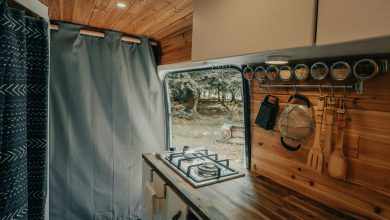Kettling, gurgling, and whistling: Decoding the 7 strange noises your boiler is making
Hearing strange sounds coming from your central heating system can be unsettling. While some noises are normal—the gentle hum of the pump, or a quick click during ignition—a sudden, loud, or persistent sound is your boiler’s way of asking for help.
If your boiler is making noise, identifying the sound is the first step to diagnosing the problem. Here are 7 common boiler noises, what they usually mean, and whether you can fix them yourself or need a trusted, Gas Safe-registered engineer.
1. Kettling or whistling (the boiling kettle sound)
This is one of the most common and distinct noises a boiler can make. It sounds exactly like a kettle reaching boiling point—a high-pitched whistling noise from the boiler, sometimes accompanied by a low, persistent rumble.
| Cause | The problem | The fix |
| Limescale or sludge build-up | Over time, especially in hard water areas, mineral deposits (limescale) and rust sludge collect on the heat exchanger. This restricts water flow, causing the water to overheat and steam bubbles to form, which create the “kettle” sound as they burst. | If you suspect a kettling boiler fix is needed due to limescale in boiler fix, you need a professional power flush and/or chemical descaling (often using a specialist product like Sentinel X200). An engineer may also recommend installing a magnetic filter to prevent future build-up. Do not attempt a chemical flush yourself. |
| Overheating | A faulty thermostat or pump could be causing the boiler to run hotter than its settings, leading to water boiling inside. | Check your boiler’s thermostat settings. If the noise persists, a Gas Safe engineer will inspect the pump and thermostat. |
2. Banging or booming (The “water hammer” effect)
A loud, sudden banging noise is often alarming. In many cases, this is an extreme version of kettling where the steam bubbles are so large they collapse violently.
| Cause | The problem | The fix |
| Kettling/limescale | As above, restricted flow due to scale leads to steam and sudden, violent water movement. | Call an engineer to perform a system flush. |
| Delayed ignition | If you have a gas boiler, a loud boom on start-up suggests gas has accumulated before the ignition spark fires. This is a safety issue. | Turn the boiler off immediately and call a Gas Safe-registered engineer. Do not try to restart it. |
| Water hammer | Pipes vibrating as water suddenly stops or changes direction, often due to a fast-closing valve (like a solenoid valve) or loose pipework. | A tradesperson can adjust water pressure or secure loose pipework. |
3. Gurgling (running water sound)
If you hear a persistent, trickling, or loud gurgling sound coming from your boiler or pipes, you’re likely dealing with trapped air or blockage.
| Cause | The problem | The fix |
| Trapped air in the System | Air bubbles are trapped in the pipework or radiators, disrupting water circulation. | Bleed your radiators. If bleeding the radiators stops the noise, the issue is resolved. You may need to repressurise the boiler afterward. |
| Frozen condensate pipe | In very cold weather, the external condensate pipe (usually a white plastic pipe) can freeze, causing water to back up and creating a gurgling sound in the boiler. | Carefully thaw the pipe using warm water (not boiling water) or a hot water bottle. Once thawed, the boiler should resume normal operation. |
| Low water pressure | When pressure drops below 1 bar, air can be drawn into the system, meaning your boiler gurgling might be linked to a pressure issue. | Check the pressure gauge. If it’s too low (in the red zone), repressurise the system according to the manufacturer’s instructions. |
4. Clicking or zapping (Excessive)
It’s normal to hear a click when your boiler ignites or switches off. Excessive, continuous, or loud clicking, however, is a warning sign.
| Cause | The problem | The fix |
| Ignition failure | The boiler attempts to ignite but fails, or the flame sensor is dirty, causing the ignition sequence to repeat. | Call a Gas Safe engineer. This requires inspection of the electrodes, gas valve, and circuit board. |
| Faulty thermostat | The thermostat is constantly turning the boiler on and off, leading to frequent clicking. | An engineer can test and replace the thermostat or control unit. |
5. Humming or buzzing (excessive vibration)
A faint hum is normal, especially in modern boilers. A loud, excessive, or vibrating that resembles a buzz or loud drone points to a mechanical issue.
| Cause | The problem | The fix |
| Faulty pump/fan | The boiler’s circulation pump or fan has worn bearings or is sticking, leading to a vibrating noise. | A qualified professional will need to repair or replace the affected component. |
| Loose components | Internal screws, casing, or fixings have come loose due to vibration over time. | Check for any loose visible screws on the casing and tighten them carefully. If the noise is internal, call an engineer. |
6. Hissing
While sometimes confused with the early stages of kettling, a persistent hissing sound can also point to a system under strain.
| Cause | The problem | The fix |
| System pressure too high | Excessively high pressure can cause the pressure relief valve to leak or hiss as it tries to release pressure. | Check your boiler pressure (should be between 1 and 2 bar). If too high, you may need to bleed a radiator or release water from the drain-off valve. If it keeps rising, contact an engineer. |
| Small internal leak | Hissing can be the sound of steam or water escaping from a pinhole leak within the boiler unit. | Call an engineer immediately to diagnose and repair the leak. |
7. Rattling or grinding
These metallic sounds suggest internal friction or a component hitting the casing.
| Cause | The problem | The fix |
| Worn pump bearings | A grinding noise is a sign the pump bearings are failing and rubbing against other components | Requires a professional. The pump will need to be replaced. |
| Loose pipe clips or casing | The pipework is vibrating against a wall or the boiler casing is loose. | Visually inspect external pipes and clip them back into place. If the rattle is internal, call a professional. |
When to call a Gas Safe-registered engineer
While you can troubleshoot simple fixes like bleeding radiators or thawing a condensate pipe, many of these noises point to serious internal issues that require professional attention.
You must call a Gas Safe-registered engineer immediately if:
- You hear a banging or booming sound on ignition (delayed ignition).
- The kettling or whistling noise persists after checking pressure and bleeding radiators.
- You notice any smell of gas, carbon monoxide, or an electrical burning smell.
- The noise is accompanied by a leak, low pressure, or a complete loss of heat.
Ignoring a strange noise, especially those related to scale build-up or ignition issues, will reduce your boiler’s efficiency, increase your energy bills, and ultimately lead to a costly breakdown.
With Rated People, you have the power to get it done. Find a trusted, local tradesperson today.



